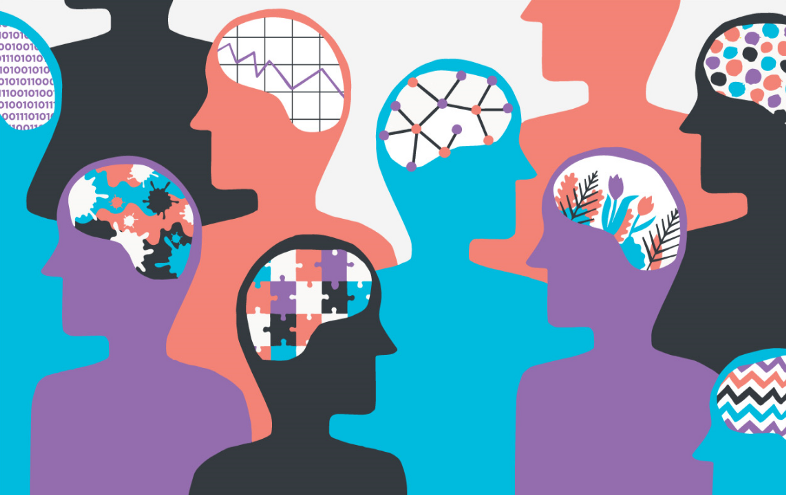Neurodiversity: Why It Matters
October 17, 2022
Most people, when seeing someone who looks or acts different from them, automatically begin to do one of two things: look away or stare. It’s human nature, but it doesn’t mean that no other option exists. Why not, instead of avoiding eye contact or blatantly staring, try to approach the situation with an entirely different perspective? First, we must understand that not everyone thinks, speaks, or behaves in the same way as we do, and that’s okay. It doesn’t make them any less human, it just means that their brain develops or works differently. It’s clear that we, as a society, need to be more accepting and make it a priority to understand those who are different from us.
To be able to see things in a different light, we can explore the concept of neurodiversity. Harvard Health emphasizes that neurodiversity does not regard someone who’s different as deficient or disabled, but rather as normal because there is no one right way of interacting with the world. There’s a common misconception that neurodivergent people are flawed or incomplete in some way, but that is fundamentally incorrect. They’re just like everyone else and deserve to be treated as such. They are curious, they have hobbies and interests, they feel the same emotions as everyone else – they are just as human as everyone else. Yes, they view the world differently, through a unique lens, but that does not subtract from their value as human beings.
Neurodivergent people are often described as difficult to deal with or unresponsive, but just because they don’t react in the same way that neurotypical people do, does not make them a burden. There’s an undeniable prejudice that people have against those with neurological conditions, yet it’s completely unwarranted because most of them have never had the pleasure of interacting with these incredible individuals. It is also assumed that neurodiversity is only used for autism and Asperger Syndrome, when in reality, many more conditions fit under the term, including ADHD, dyslexia, Tourette’s syndrome, Down syndrome, and dyspraxia.
Neurodiversity does not mean pretending that the condition isn’t there or that there aren’t certain obstacles that come with it, but it is the idea that we are all different and differences do not imply deficits. By that logic, we would all be considered deficient, since we all have distinctive qualities that separate us from everyone else. So the next time you are inclined to stigmatize someone with a neurological condition, just remember that no two humans are completely alike.
Image Source:
https://regarding365.com/neurodiversity-technology-and-the-workplace-fb470ce13d07
Works Cited:
Bailin, Aiyana. “Clearing up Some Misconceptions about Neurodiversity.” Scientific American Blog
Network, Scientific American, 6 June 2019, https://blogs.scientificamerican.com/observations/clearing-up-some-misconceptions-about-neuro
diversity/.
Guestblogger. “Neurodiversity & Neurodivergent: What Do They Mean and How Do They Impact Me as a PGR?” UofG PGR Blog, UofG PGR Blog, 31 Mar. 2021, https://uofgpgrblog.com/pgrblog/2021/3/24/neurodiversity.
“Neurodivergent: What It Is, Symptoms & Types.” Cleveland Clinic, 2 June 2022,
https://my.clevelandclinic.org/health/symptoms/23154-neurodivergent.
Nicole Baumer, MD, and MD Julia Frueh. “What Is Neurodiversity?” Harvard Health, Harvard Medical School, 23 Nov. 2021, https://www.health.harvard.edu/blog/what-is-neurodiversity-202111232645.https://blogs.scientificamerican.com/observations/clearing-up-some-misconceptions-about-neurodiversity/.
